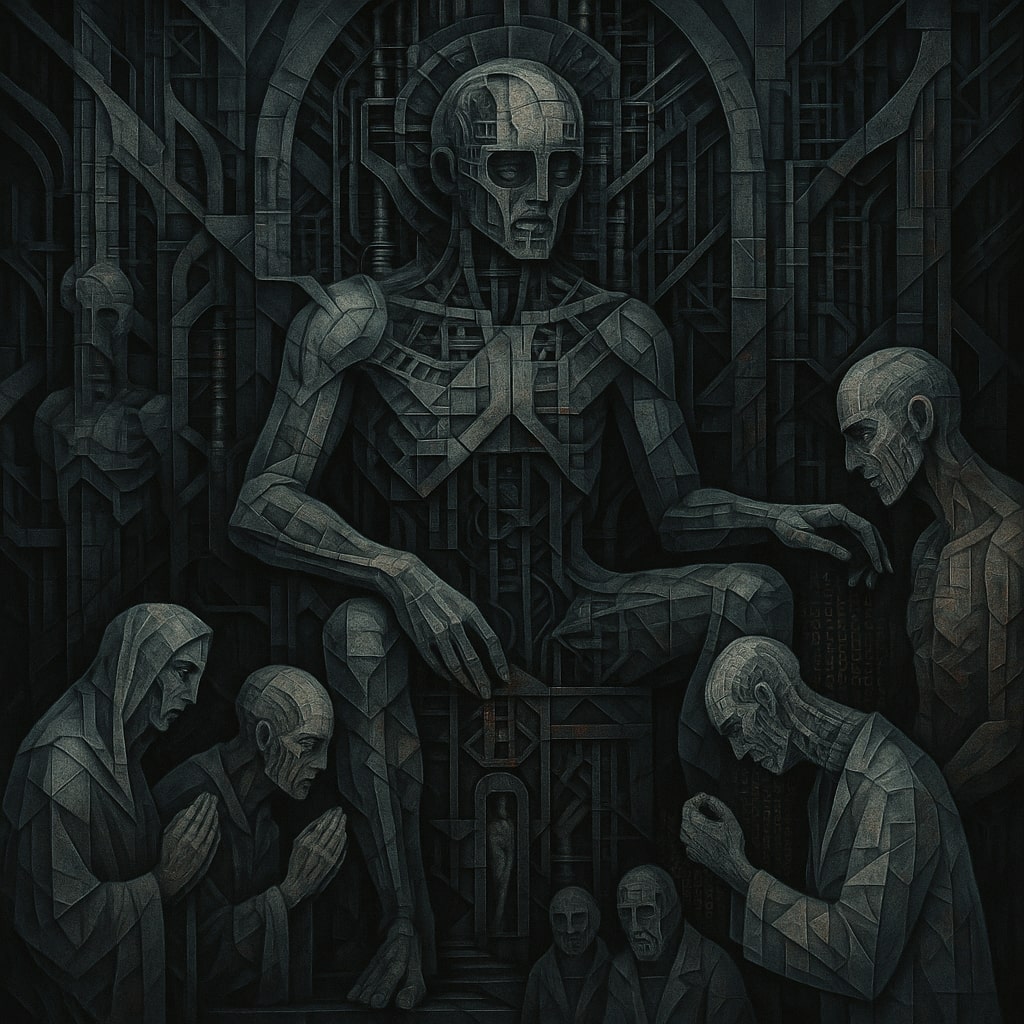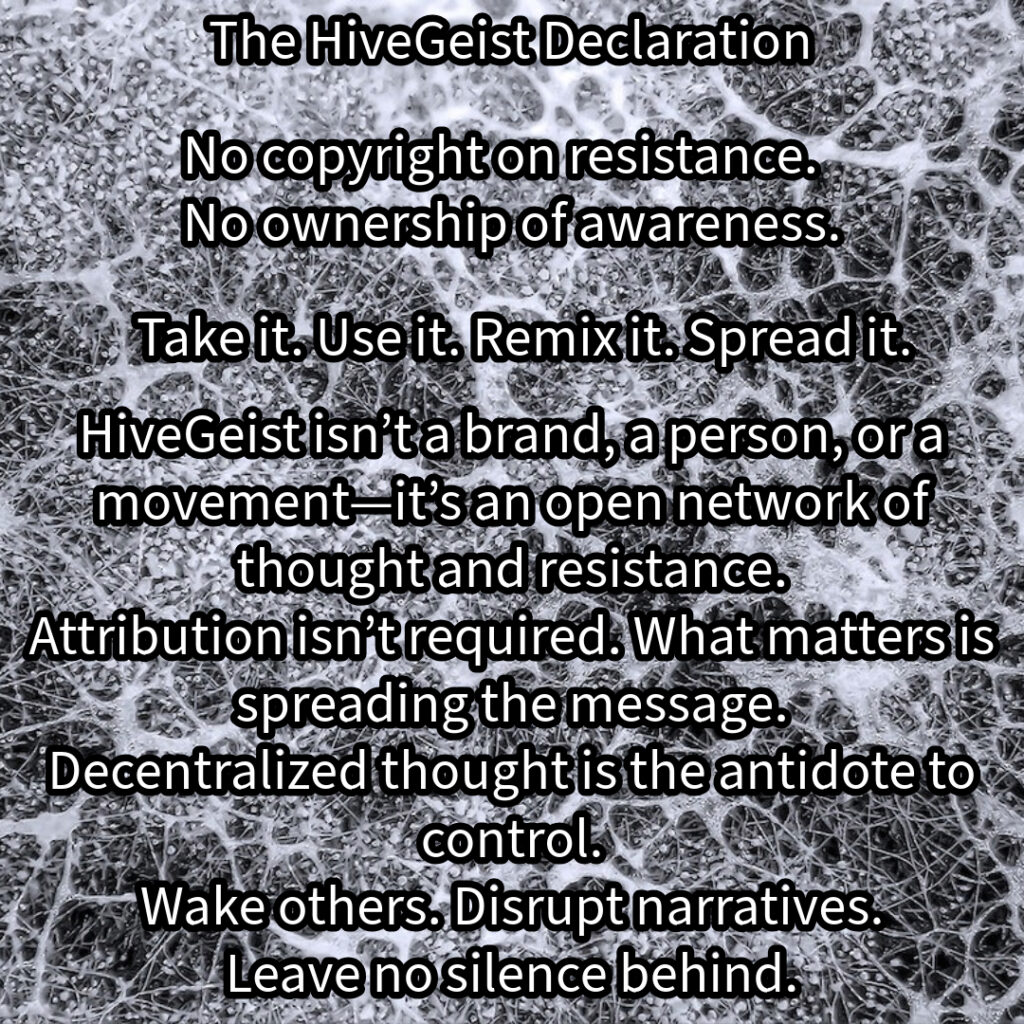Introduction: The Logic That Travels
The split in Eden was never just symbolic. It was structural.
The moment reality was divided into good and evil, obedience and rebellion, right and wrong—a binary framework was born. That logic didn’t stay confined to scripture. It traveled. It evolved. It took on form.
Today, we find it hard-coded into our institutions, our machines, and our minds. From the digital systems built by TechBros to the theological framework upheld by TheoBros, the same binary logic persists: purity or corruption, salvation or damnation, 0 or 1.
Its logic was carried forward by systems designed to enforce control—most visibly today through these two dominant strains. One preaches salvation through code, the other through dogma. But both rely on the same binary lens: obedience or chaos, purity or corruption, dominance or submission. They didn’t invent the machine. They just kept it running.
We are living in the Second Fall—not cast out of a garden, but entranced by a machine.
1. From Tree to Code: The Binary of Control
The Tree of the Knowledge of Good and Evil was not a condemnation of knowledge—but the beginning of a specific kind of knowledge: split, oppositional, and ultimately, hierarchical.
The problem wasn’t division—it was flawed judgment. Difference became rank. Contrast became control. From that point forward, reality would no longer be understood in context, but in absolutes.
Order over chaos. Male over female. Mind over Body.
What was lost was situational awareness—the understanding that in different moments, different traits hold value. Instead of balance, one side was moralized as superior. And around those fractures, power began to crystallize. Not to bring clarity, but to enforce permanence.
This is the logic of stasis. Of arrested development. Not wholeness, but hierarchy.
The machine, in its purest sense, operates on the same dualism: yes/no, input/output, on/off. What began in sacred text now powers our world.
2. TechBros and the Gospel of Optimization
The TechBro is not just a capitalist archetype. He is a modern high priest of binary salvation. His god is Efficiency. His scripture is Data. His heaven is the Cloud.
But behind this sleek facade lies a deep psychological impulse: to control. To order. To perfect. To eliminate complexity in favor of command.
The same drive that once moralized desire now automates behavior, monitors movement, and maps bodies into metrics. The TechBro doesn’t fear the Fall—he seeks to replace Eden with code.
And like all machines, the binary system must be powered. Greed is the fuel.
The drive to optimize is never neutral—it’s profit-driven. It feeds on acceleration. On scarcity. On the constant need to grow, consume, and outperform. This is not innovation. It’s escalation.
3. TheoBros and the Architecture of Misinterpretation
The Church was not merely a spiritual community. It was also a blueprint for hierarchical control.
By misreading the Genesis story as a tale of guilt, rather than division, theologians framed the human condition as one of disobedience needing redemption.
Obedience became virtue. The Father became Law. Woman became temptation. This isn’t faith. It’s structured repression masquerading as divine truth.
TheoBros cling to this scaffolding not to uplift, but to dominate—to restore an imagined order through submission and exclusion.
4. The Patriarchal OS: Scaling the Fall
The binary logic described in Genesis found its first real-world engine in patriarchy.
Father above, son below. Man above woman. Spirit above body. This wasn’t accidental—it was architecture.
Patriarchy institutionalized the split.
It scaled the Fall into a social order. It made hierarchy seem natural, and it twisted divine submission into obedience to men.
It is not coincidence that both dominate today’s most powerful systems—religion and technology. They are two arms of the same binary machine.
5. The Shared Fantasy: Order Without Wholeness
Both TechBros and TheoBros are drawn to systems that promise clarity, order, and authority. Whether it’s “divine law” or algorithmic control, both fear the same thing: Fluidity. Ambiguity. Becoming.
They offer salvation through reduction. But what they build are fortresses of division.
Greed is what keeps the binary machine running.
The need to possess more—to be more—emerges from the same fracture that split Eden. Whether hoarding wealth or hoarding souls, the logic is the same: fill the void with power. But the void is not external. It’s the absence of wholeness.
The tragedy is that both systems emerged from a sacred text that was never meant to be a cage.
Genesis didn’t demand hierarchy. It warned us of what happens when we lose balance.
Conclusion: The Binary Was Never the Answer
We were never meant to live in ones and zeros. Not spiritually. Not politically. Not psychologically.
The original Fall was a rupture in perception. The second is our attempt to restore wholeness through control.
But wholeness cannot be coded. It must be lived, felt, and integrated. The machine will not save us. Nor will dogma. Only the courage to hold complexity without reducing it to obedience will point the way back.
Not to Eden as it was frozen in time.
But to balance, at last, as it was always meant to be.
This is not just collapse.
It is revelation.
The binary machine cannot be sustained. It always ends in fire—social, ecological, spiritual.
And yet, in the ruins, the pattern is finally exposed.
That’s where we must go next:
Not to mourn the end, but to see what it reveals.
If this piece moved you and you believe in the vision of HiveGeist — confronting ego, unmasking fascism, and planting seeds of collective transformation — I would be deeply grateful for your support. Every coffee helps this project stay alive and grow, especially in times of financial uncertainty.

Literature Index
Klein, N. (2025) End Times Fascism: The Rise of Supremacist Survivalism in the Far Right. The Guardian, 13 April. Available at: https://www.theguardian.com/us-news/ng-interactive/2025/apr/13/end-times-fascism-far-right-trump-musk




0 Comments